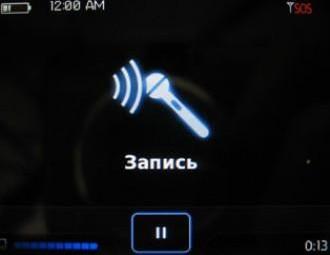Aliaksei Kazliuk: Ban on audios in courts is judicatory bluff

Newly adopted decision of the Supreme Court indicates the illegality of demands to put off dictaphones in the process of judicial proceedings.
On 9 January 2014 the Decision of the Plenum of the Supreme Court of the Republic of Belarus of 20.12.2013 № 11 "On ensuring the transparency in the administration of justice and on the dissemination of information about the activities of courts" (hereinafter - the Decision) became available.
The document is remarkable due to a number of reasons, reports Legal Transformation Center “Lawtrend”. Aliaksei Kazliuk, Lawtrend expert, lawyer, analyses the decision.
It is obvious that this Decision is linked to the long and consistent work of Belarusian human rights defenders on trial monitoring. Numerous cases are known when under various pretexts the public was allowed to formally open court proceedings. In most situations, it became the subject for complaints, which eventually resulted in the practice that was discussed by the Plenum.
However, this is only a subjective opinion, as the mechanisms of decision-making in our country are far from the standard of transparency. At the same time, this decision contains a number of norms which are important for the work of journalists and human rights defenders.
Purpose and contents of the document
The decision is adopted in order to correct and uniform the application of legislation regulating trial transparency issues, as well as the timely dissemination of objective information about the activities of courts.
The document stresses that the access to information about the activities of courts contributes to the lawful, justified and fair consideration of cases in courts, to the improvement of the organization and culture of judicial activities, to the implementation of educational and preventive functions of justice, to the objective informing of the public about the activities of courts, to the increase in legal conscience of citizens.
The decision does not provide any additional rules provisions. Its major goal is to guarantee the implementation of standards that already exist in the legislation. These standards relate to the following issues:
a) unreasonably limited access of citizens to courtrooms;
b) audio, photo and video fixation of a trial by those present;
c) a closed court session and specific grounds for it;
d) distribution of timely, objective and accurate information about the activities of courts.
Conclusion
The decision of the Plenum of the Supreme Court is certainly important for judges, can and should be used by human rights defenders , lawyers and journalists in their work. It is evident that a considerable role in the elaboration of this document belongs to the negative practice of previous years that was actively fought against by at least two professional community - human rights defenders and journalists through making the facts public and through legal mechanisms.
However, this document is the products that was designed exclusively by the judicial authority in accordance with their own understanding of the tasks that must be solved. Perhaps, this explains the insufficient attention paid to some specific issues. Unfortunately, in many areas the practice of public discussion of such documents is not common. In this case, such a discussion would remove a number of controversies, bringing the Decision closer to the expectations of the society. The public discussion of draft decisions was practiced by the Supreme Economic Court, and it is logical to expect the expansion of this approach to the work of the Supreme Court of Justice after the merger of the courts.
The point to be stresses at is the reluctance of the judiciary to take into account the realities of the modern information society (the document in question is just another proof). As far as the author knows, in Belarus there is no research of the contents of the official court websites.
Considering the monitoring of the websites of other public bodies, without normative fixation of the information that is to be placed on the court websites, any significant improvement of the situation cannot be expected. The absence of such a list in the Decision is a serious drawback of document.
Information provided by the Legal Transformation Centre Lawtrend
-
03.01
-
07.10
-
22.09
-
17.08
-
12.08
-
30.09



























